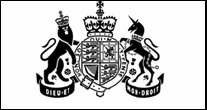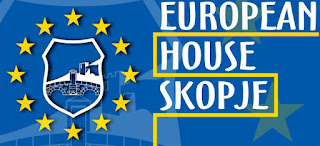
The European Commission welcomes the reforms achieved in Macedonia in the last year, however it notes to the Government that it should speed up the judicial and internal affairs reforms and to reinforce the measures for fight against organised crime and corruption. This is indicated in the European Commission Progress Report on Republic of Macedonia in the EU accession process, which was published on 8 November 2006.
“Republic of Macedonia has continued to make progress over the past year – since the granting of candidate status a year ago – but at a slower pace”, the Enlargement Commissioner, Olli Rehn during today’s presentation of the EC Report. The report also states that the Parliamentary Elections might be one of the reasons for the slower implementation of the reforms.
The Head of the Delegation of the European Commission to the Republic of Macedonia, Erwan Fouéré has officially handed over the European Commission’s report to the Government of Republic of Macedonia.
“This Report gives the indication on what we should focus in future, what are the weaknesses that we should concentrate on, what we should do, and where we need to pay more attention. And that is what we are going to do”, outlined Prime Minister Nikola Gruevski, after the handover of the Report. He also pointed out that Government will analyse the Report and subsequently express its position.
According to the Ambassador Fouéré the Report reflects the progress that has been achieved by Macedonia in the past 12 months. “This report is based on rigorous objective assessment of the progress achieved and also it is encouragement to the country to pursue the reform and to redouble its effort in order to bring the country further on the way towards EU accession”, Fouéré said.
“The Report gives a realistic reflection of the conditions, and it will provide the positive framework within which the Government will position its priorities for the upcoming period, so that in 2007 we can show results on the issues that have been raised in the Report”, the Deputy Prime Minister responsible for European Affairs, Gabriela Konevska Trajkovska said.
Konevska-Trajkovska referred to certain issues which have been raised in the Report. In the area of political criteria, she emphasised the fight against corruption, public administration, and the issues of political dialogue. In respect to the criteria for adoption of the acquis communautaire, a focus on the implementation of the strategic documents and law enforcement is needed. A special emphasis was given to the harmonisation in the area of electronic communications – liberalisation of telecommunications, which is also a priority in the implementation of the Stabilisation and association Agreement.
The documents are attached at the following links:
Progress report on the Republic of Macedonia [en]
EU Enlargement Strategy and Main Challenges 2006 – 2007[en]
Extract from the Conclusions of the EC's Report to the European Parliament and the Council - Startegy for Enlargement and main Chalenges 2006-2007 [mk]


